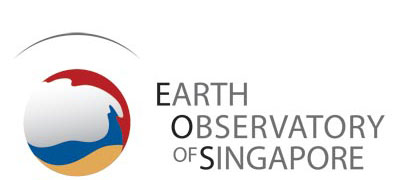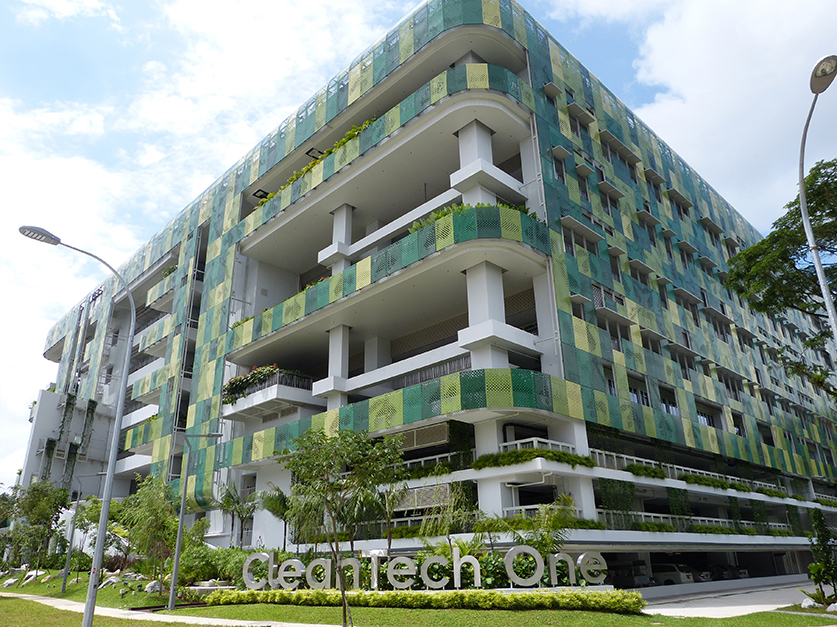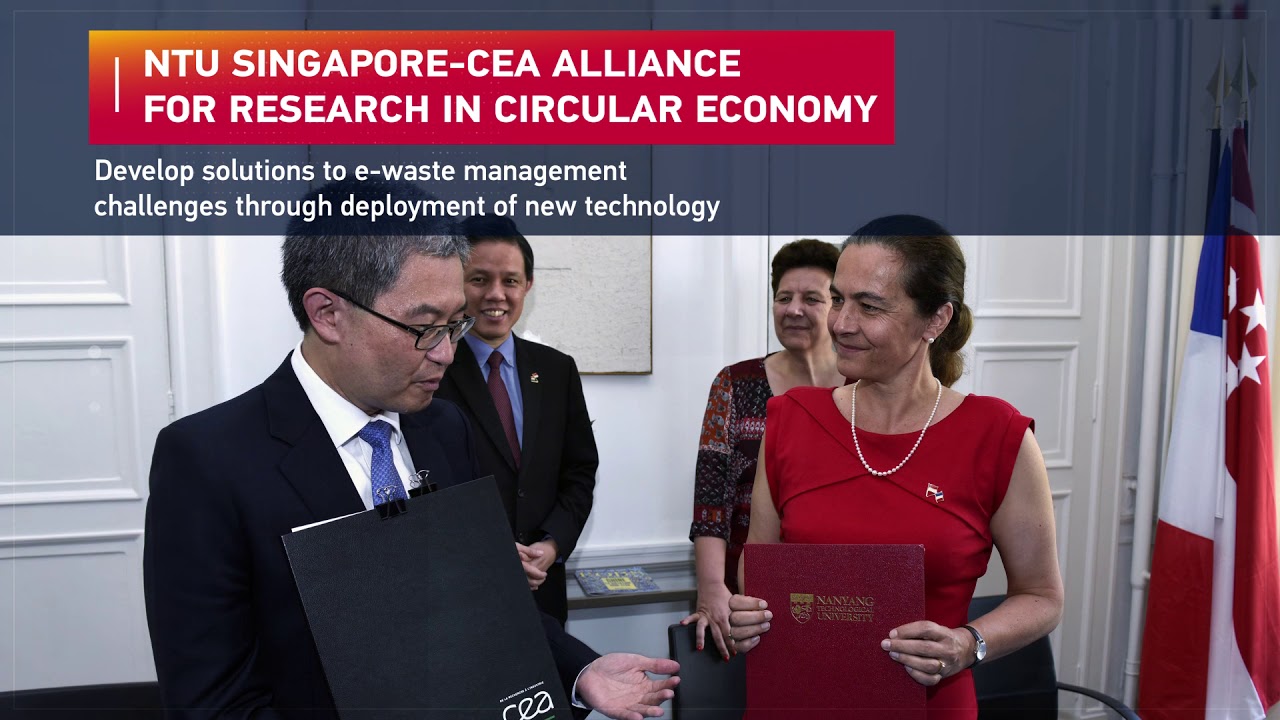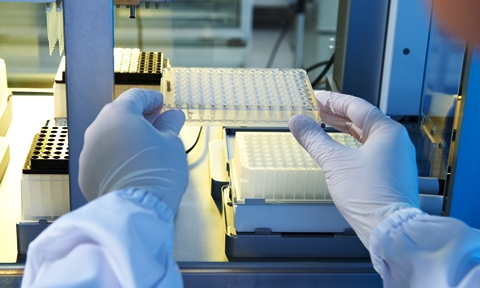Discover the innovations undergoing research, development and testing at NTU research centres
NTU has several research centres focusing on environmental sustainability. This includes the Earth Observatory of Singapore (EOS), Energy Research Institute @NTU (ERI@N), Nanyang Environment & Water Research Institute (NEWRI), Singapore Centre for Environmental Life Sciences Engineering (SCELSE), Singapore CEA Alliance for Research in Circular Economy (SCARCE), Future Ready Food Safety Hub (FRESH@NTU), Institute for Digital Molecular Analytics & Science (IDMxS), NTU Integrated Medical, Biological & Environmental Life Sciences (NIMBELS) and a Sustainable Learning Lab located in the National Institute of Education.
Earth Observatory of Singapore (EOS)
The Earth Observatory of Singapore conducts fundamental research on earthquakes, volcanic eruptions, tsunamis and climate change in and around Southeast Asia, toward safer and more sustainable societies. EOS aims to help build the social compact for Singapore to tackle the challenges of climate change and sustainability, which is central to the major Green Plan policy priority of the Government.
The Institute integrates research across NTU in the context of the energy challenge, and then helps translate outcomes into industry and practice. ERI@N's research focuses on a host of
Interdisciplinary Research Programmes, Flagship Programmes, Consortium Platform and an Accelerator Programme that covers the energy value chain from generation to innovative end-use solutions, motivated by industrialisation and deployment.
Singapore CEA Alliance for Research in Circular Economy (SCARCE)
A joint laboratory between NTU Singapore and the French Alternative
Energies and Atomic Energy Commission (CEA). The joint venture will synergize the expertise of researchers from Singapore and France to address the recycling and recovery of materials from electrical and electronic waste (e-waste), such as discarded lithium-ion
batteries and printed circuit boards. In addition, the laboratory will explore advanced separation and extraction processes of e-waste which are less energy intensive and toxic as compared to current practices. The overall aim is to develop innovative
and energy efficient solutions to recycle and recover e-waste.
Singapore Centre for Environmental Life Sciences Engineering (SCELSE)
Hosted by NTU in partnership with NUS, SCELSE is linking new insights from the life sciences with expertise from the emerging technologies in engineering and natural sciences to understand, harness and control microbial biofilm communities and microbiomes. The exploratory power available to SCELSE researchers, from laboratory-scale to full-scale environmental, medical and engineered systems, combined with an unrivalled level of interdisciplinary expertise places SCELSE in a unique position, to deliver a comprehensive understanding of all aspects of a microbial system.

Future Ready Food Safety Hub (FRESH@NTU)
Set up as a national research platform under the Singapore Food Story R&D agenda, the Future Ready Food Safety Hub (FRESH) provides expert counsel and food safety research services to public and private organisations working to bring novel foods to Singapore. Leveraging our expertise in food toxicology and risk assessment science we help ensure that foods, even those without prior history of safe consumption, can be safely eaten.

Institute for Digital Molecular Analytics and Science (IDMxS)
The Institute for Digital Molecular Analytics and Science (IDMxS), is a Research Centre of Excellence (RCE) at NTU. IDMxS is an organised effort focused on interfacing the biological and living world with the world of information technology and data science.

NTU Integrated Medical, Biological & Environmental Life Sciences (NIMBELS)
NTU Integrated Medical, Biological & Environmental Life Sciences (NIMBELS) is a university-level strategic venture that brings various NTU entities together and collaborate on initiatives to promote synergistic and interdisciplinary partnerships that are critical to addressing many of today’s health and environmental challenges.

Sustainability Learning Lab (SLL) at NIE
The Sustainability Learning Lab (SLL) is a formal center of excellence situated within the National Institute of Education, Nanyang Technological University. Set against a backdrop of rapid climate change, widespread ecological degradation, and uneven development, sustainability is one of humanity’s grand challenges. The inception of SLL is driven by the collective aspiration of our research and teaching community to cultivate sustainability knowledge as well as foster adaptable and inclusive shared futures.
Our Industry Partners
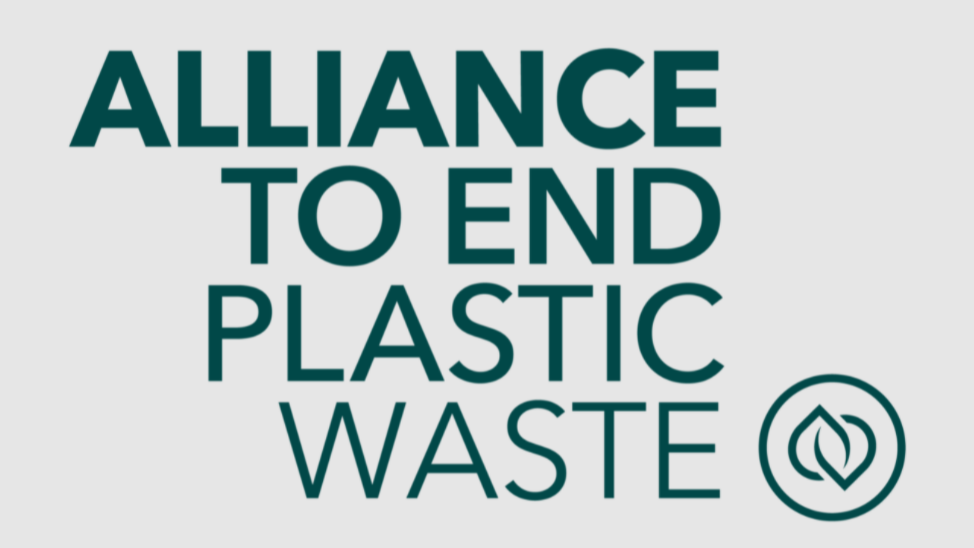







Research News
Satisfying the world's appetite without heating up the globe

The global food system is a significant contributor to greenhouse gas emissions, a major cause of climate change and global warming. A considerable proportion of the emissions comes from food loss and waste, though the exact impact size is not known.
To estimate emissions from lost and wasted food, Asst Prof Fei Xunchang of NTU’s School of Civil and Environmental Engineering co-led a study that tracked the emissions of various types of food at different stages of their lifecycles, including transportation, sale, consumption and disposal.
Analysing the food supply data of 164 countries from 2001 to 2017, the researchers examined emissions across 54 food commodities belonging to four categories: cereals and pulses; meat and animal products; vegetables and fruits; and root and oil crops.
They found that lost and wasted food accounted for about half of the global food system’s total emissions in 2017, an amount equivalent to 9.3 billion metric tons of carbon dioxide. Almost three quarters of emissions that occurred during the supply-chain phase came from lost meat and animal products.
The researchers also found that food waste treated with advanced techniques, such as anaerobic digestion and composting, generated fewer emissions in developed countries than waste disposed of in landfills.
“Our study shows that factors such as eating habits, technological interventions and socioeconomic aspects impact greenhouse gas emissions from lost and wasted food,” says Asst Prof Fei.
“Reducing meat production in some areas, while switching from landfills to advanced waste treatment techniques in others could make the food system more sustainable.
”The study “Cradle-to-grave emissions from food loss and waste represent half of total greenhouse gas emissions from food systems” was published in Nature Food(2023), DOI: 10.1038/ s43016-023-00710-3.
The article appeared first in NTU's research & innovation magazine Pushing Frontiers (issue #23, March 2024).
- Civil and Environmental Engineering
- Engineering & Technology
- Discoveries
- Sustainability



